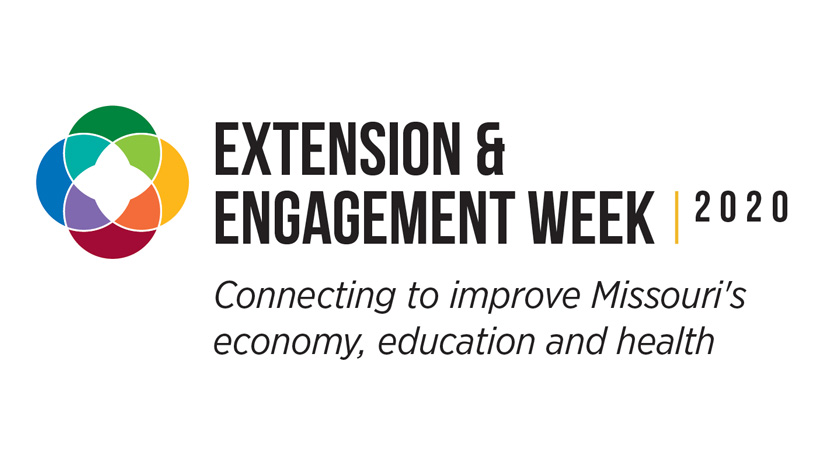
Ted Abernathy, of Economic Leadership LLC, delivered the keynote session, which focused on essential job skills and employment trends for the future of Missouri.
The University of Missouri System Extension and Engagement Week continued Thursday morning with “All Things Missouri: Workforce Development,” a discussion about economic growth and the future of the state’s workforce.
Co-sponsored by MU Extension and Missouri State Chamber of Commerce, the digital event’s centerpiece was a keynote address from Ted Abernathy, managing partner of Economic Leadership LLC, titled “Finding the Future: The Next New Normal.”
UM System President Mun Choi and UM System Chief Engagement Officer Marshall Stewart moderated the event, which also included a panel discussion with business leaders including: Peter Callan, senior director of talent of the University of Missouri Healthcare; Jeanette Hernandez Prenger, president and CEO of ECCO Select; Valerie Patton, senior vice president of inclusion and talent attraction and executive director of the St. Louis Business Diversity Initiative at the St. Louis Regional Chamber of Commerce; and Amanda Cooper, vice president of corporate services of MFA Incorporated.
Things kicked off with several firsthand accounts of how real Missouri workers developed their skills and secured a brighter economic future for themselves before moving to Abernathy’s remarks about the changing economic landscape.
“Really great stories,” Marshall said before the keynote. “Stories not only about someone wanting to make a good living but someone wanting to contribute, to have dignity and also to improve their lives and the lives of others. You know, that’s what workforce development is really all about.”
Abernathy elaborated on his vision for the future of workforce development and the challenges inherent in that mission. He said the issue appears simple on the surface. Economic developers and chambers of commerce recognize that regions and municipalities need to have enough skilled labor, with the right skills, to be competitive.
“I have never met an elected official or an economic developer who didn’t want to fix the workforce,” Abernathy said, reflecting on his time advising governments and chambers of commerce in the Southern U.S. “I also never met a business who didn’t need more workers with more skills, so the issue ought to be pretty simple.”
However, that’s not always the case.
“Once we crawl into the workforce issue, then the complexity of it typically creates a complexity paralysis for us,” Abernathy said. “We look for silver bullets, and we don’t end up making it much better. When people say workers need better skills, what do they mean? I think this is the beginning of the confusion that we face.”
Abernathy said his company deals with that question by breaking down skills into five broad categories: basic skills, standard reading and writing abilities; life skills, reliability and self-motivation; transferable work skills, communication and teamwork; job skills, specific expertise and knowledge; and future skills, capability to learn new skills and adapt to technology.
In terms of the “next new normal,” future skills and the ability to adapt will be key.
“Now, a lot of research has been done on these types of skills specifically,” Abernathy said. “The bottom line is the cognitive skills are now more important than manual skills, and non-routine skills are more important than routine skills. If it’s the same old thing, it’s not as important as if you can do new things.”
In addition to identifying what skills are most valuable, it will be essential to recognize the trends most likely to impact the workforce going forward. Abernathy identified four: remote work, employee relocation, automation and data analytics.
Due to the COVID-19 pandemic, many businesses and schools moved to remote work. Abernathy expects this to continue after the pandemic, estimating that up to 30 percent of the workforce could work from home at least a couple days week. Thus, self-motivation skills will need to be a priority in hiring.
He also noted that people have been moving away from big cities in recent years because of affordability issues. However, they are mostly relocating to mid-sized cities – not rural areas. Though a greater move to remote work could see that change.
“As that happens, the ability to work remotely means that somebody can work in Joplin, and they’re actually working for Cerner in Kansas City,” Abernathy said.
Abernathy ended the keynote session by touting data analytics. He noted that workers and consumers instinctively look at analytics now. Before moving for a job, a potential employee will likely look at housing prices, health care outcomes and school ratings in the area and factor those variables into a final decision.
He closed by adding governments and chambers of commerce should look at economic and employment data to identify what jobs can provide the most value to the state.
“How you raise salaries in Missouri is you focus on industries that have high GDP per worker and you train workers on that,” Abernathy said. “That’s using data analytics, so we know what it takes to push people up the value chain.”














